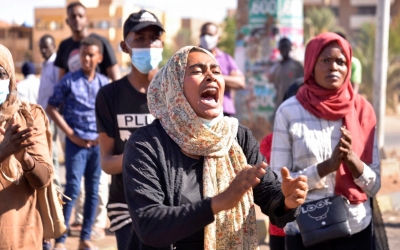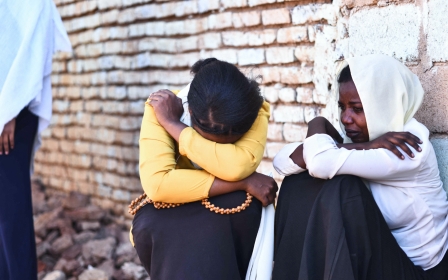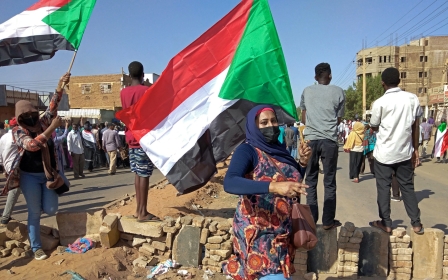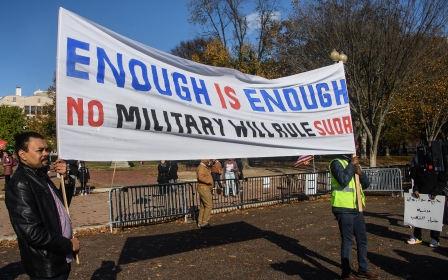Sudan coup: Deal with military a 'setback', says former foreign minister
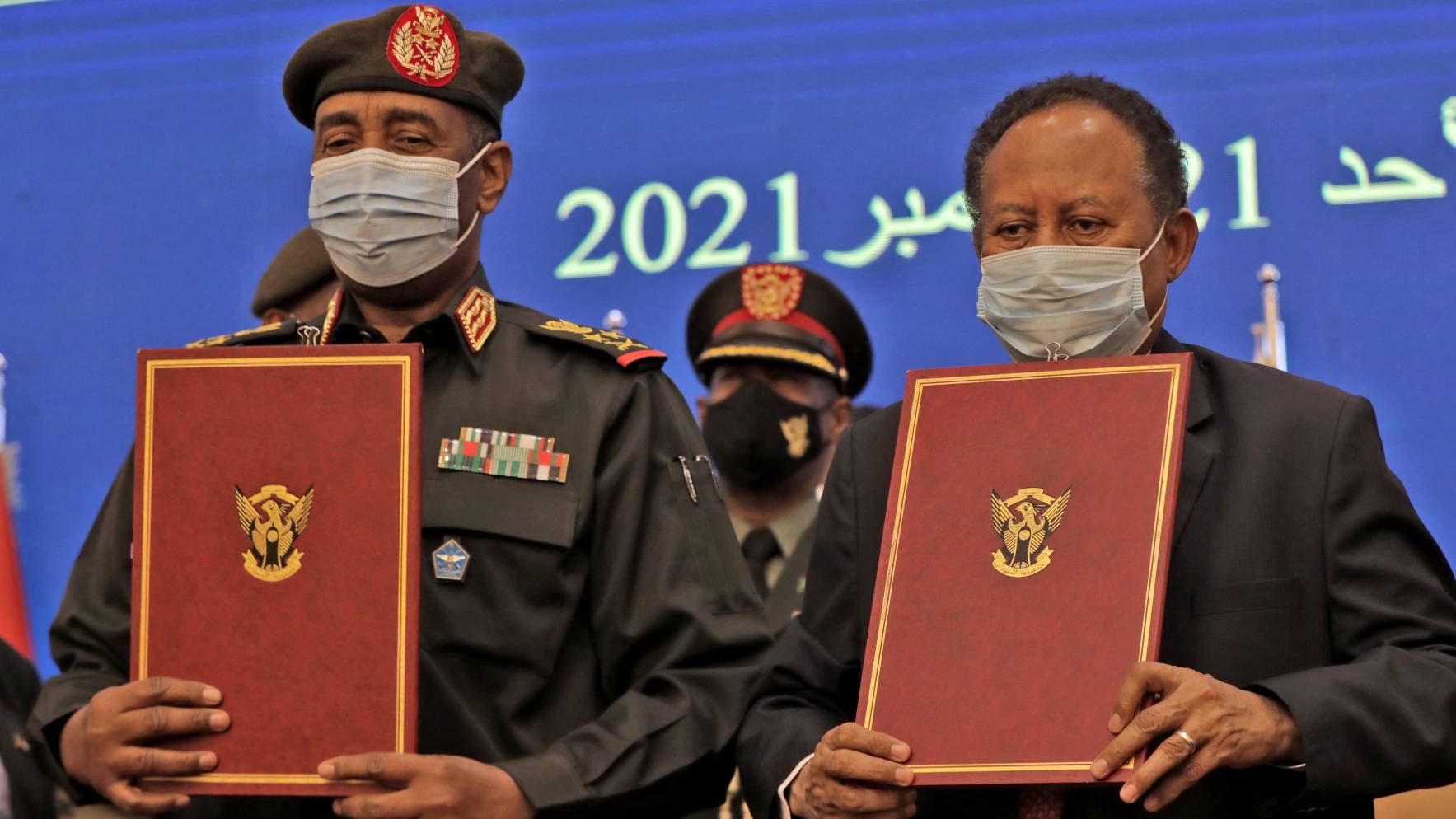
Sudan's former foreign minister has slammed the political agreement between Prime Minister Abdalla Hamdok and General Abdel Fattah al-Burhan, calling it a setback for the country's democratic transition.
Speaking at a virtual panel hosted by the Atlantic Council on Monday, Mariam al-Mahdi - who resigned 24 hours earlier after refusing to collaborate with last month's coup leaders - suggested the agreement whitewashed the coup, as it remained unclear how much power Hamdok would yield.
"We don't question his (Hamdok's) legitimacy as a Sudanese leader, but what happened yesterday was a setback," Mahdi told the US think tank after Hamdok met with his cabinet.
On Sunday, the military reinstated Hamdok and announced the release of all political detainees after weeks of deadly unrest triggered by the coup.
Under the 14-point agreement, which was announced on state TV, Hamdok will lead a new civilian government of technocrats for a transitional period.
New MEE newsletter: Jerusalem Dispatch
Sign up to get the latest insights and analysis on Israel-Palestine, alongside Turkey Unpacked and other MEE newsletters
The prime minister, who had been under effective house arrest, said he agreed to the deal to stop the bloodshed.
Mahdi, along with 11 other members of the government, met with Hamdok after the deal was announced and submitted their resignations in protest.
"We cannot take it as a starting point," she said.
"We accept it as a fact that it happened, but we must find a new place that is more suitable for us to build trust and build rapport and to effect our transitional period while protecting Sudan from further setbacks."
The 14-point agreement also calls for the formation of all transitional institutions, including the legislative assembly and the constitutional court, and the appointment of the attorney general and chief justice.
Addressing the signing ceremony in Khartoum, Hamdok said the political agreement would correct the path of the revolution and political transition in Sudan.
"We have brought Sudan back into the international community, lifted its name from the terrorist blacklist and many other achievements. However, we still have many challenges lying ahead," Hamdok said.
However, Kholood Khair, managing partner of the Khartoum-based think tank Insight Strategy Partners, said there was not much substance to it.
"In many ways, the agreement itself is not that significant. It doesn't mention the hows or the timeframe to some of the articles. That means that it [could] be very difficult to implement," she said at the Atlantic Council event.
International support 'tone deaf'
The agreement was quickly rejected by a number of political parties and resistance committees in Sudan, including the Sudanese Professional Association and the former ruling coalition of the Forces for Freedom and Change (FFC), which had strongly supported Hamdok after he was ousted.
However, a number of countries including the US and the European Union welcomed the decision and said they were "encouraged" by the steps taken.
Some key US lawmakers have also expressed cautious optimism over the deal, with Gregory Meeks, chairman of the House Foreign Affairs Committee, describing it as "a first step".
"This is but a first step to undo the harm from an unjustified coup… the world is watching and will hold military and civilian authorities accountable for their actions," he said.
Khair said these statements underscored the vagueness of the agreement and were harmful to the country's democratic movements.
"A lot of these responses from the international community come across very tone-deaf, at best, and then at worst, as part of the problem to some of these pro-democracy groups," she said.
Hamdok's legitimacy
The deal between Hamdok and Burhan was seen as a surprise by many Sudanese protesters. Hours after the agreement was announced, thousands marched in the capital calling for the Burhan's downfall.
Some experts have pointed out that Hamdok, whose popularity has risen since the military coup, is now in a weaker position through the agreement.
'Prime Minister Hamdok is almost irrelevant for the streets at this particular moment'
- Mohanad Hashim, former BBC journalist
"What we're looking at here is now, to my mind, a weaker prime minister who is bereft of his political support system, both because they are not included in the agreement, but also because out of a principled stance, as [Mahdi] mentioned, they have all resigned," said Khair.
"So this just begs the question: what can the prime minister do now to push through these transitional priorities when he doesn't have at least a buffer between himself and the military?"
Mohanad Hashim, a former BBC journalist and former director at Sudan National Radio, said Sudan's political parties would likely continue to demand full civilian oversight of the government. However, "not necessarily with Prime Minister Abdalla Hamdok as the person to continue".
"Prime Minister Hamdok is almost irrelevant for the streets at this particular moment," he said.
Middle East Eye delivers independent and unrivalled coverage and analysis of the Middle East, North Africa and beyond. To learn more about republishing this content and the associated fees, please fill out this form. More about MEE can be found here.


